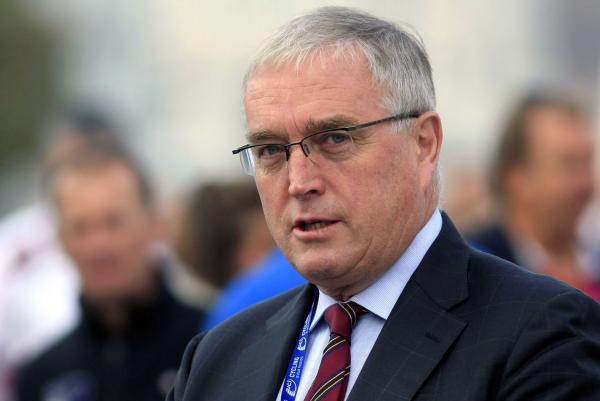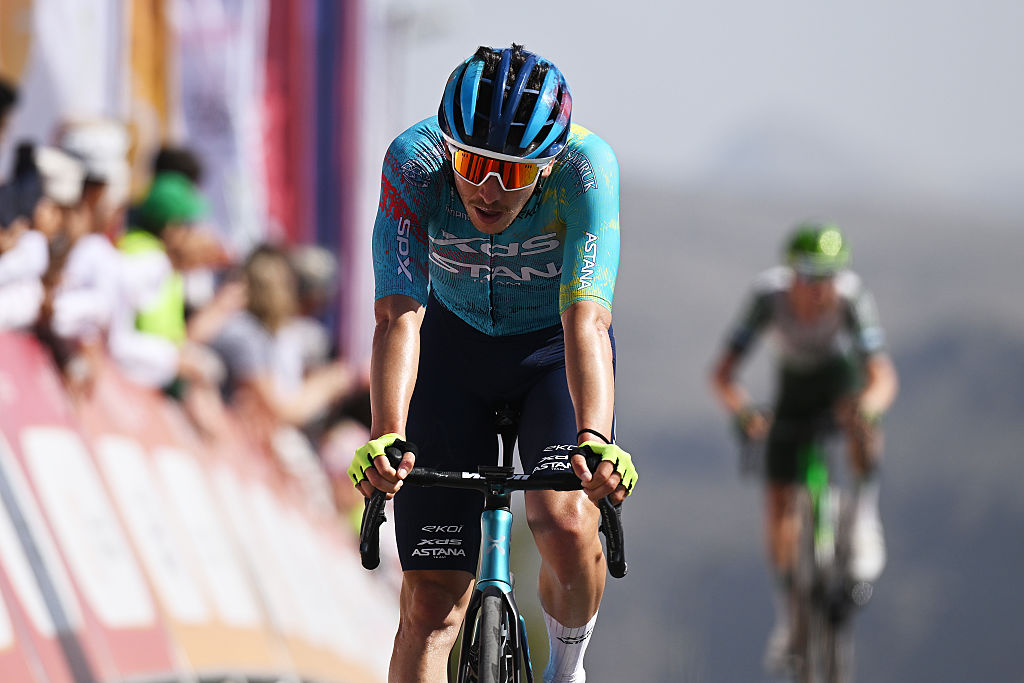McQuaid warns riders against micro-dosing
UCI President defends the biological passport programme
The latest race content, interviews, features, reviews and expert buying guides, direct to your inbox!
You are now subscribed
Your newsletter sign-up was successful

Pat McQuaid has told Cyclingnews that the lack of new passport cases opened by the UCI in the last 18 months has nothing to do with financial costs or legal bills caused by the first batch of cases. The UCI President has also warned riders against using micro-dosing techniques, insisting they will eventually be caught.
Exclusive: Anne Gripper breaks silence on blood passport
Gripper concerned over bio passport publishing
Four biological passport doping case verdicts pending from CAS
Testa and BMC weigh in behind Biological Passport
Gripper hails the wider introduction of the biological passport
Vroomen and Ashenden criticise lack of biological passport testing
In June of 2009 the first cases were launched, involving Pietro Caucchioli, Ricardo Serrano, Igor Astarloa, Ruben Lobato Elvira and Francesco De Bonis. Franco Pellizotti Jesus Rosendo Prado and Tadej Valjavec were announced just under a year later.
Since then the UCI has remained tight lipped on any potential new cases but issued a press release in August 2011 stating that it is still in the process of investigating two riders who showed abnormal blood passport values.
"There could be discussions going on for six, seven, eight, nine or ten people all at once at on an ongoing basis," McQuaid told Cyclingnews during the recent UCI World Championships.
"We could be looking for documentation or more information but that doesn't determine if cases are coming," he said, also denying that the UCI had stated in August that that they were investigating two cases.
A number of the early cases were appealed to the Court of Arbitration for Sport (CAS). The most high profile case was that of Pellizotti. He finished third overall in the 2009 Giro d’Italia and won the climber’s jersey at the Tour de France. He was eventually cleared by the Italian national anti-doping court (TNA), only for the UCI to stump up the funds to appeal to CAS. They eventually won the appeal and Pellizotti was banned for two years. Tadej Valjavec also had a similar experience and was initially cleared by the Slovenian agency (NAK) before being banned by CAS.
According to McQuaid those legal battles have not drained the UCI's coffers and have had no effect on the governing body's resilience to open more cases.
The latest race content, interviews, features, reviews and expert buying guides, direct to your inbox!
"We would never make a decision based on finance," he told Cyclingnews.
"We've been talking about finance with the board of congress this week and in recent years the UCI has lost money because it went into legal proceedings but we're back in the black now. We don't make decisions based on legal costs; we take decisions based on whether we should open up procedures. At the very beginning we don't run from a decision on the chance that he might run to CAS."
The question remains as to why there have been no new cases. Only those preferring to bury their heads in the sand would argue that the professional peloton is 100% clean.
Asked why there had been no new cases in 2011 or since the former leader of the anti-doping fight, Anne Gripper, had left the UCI, McQuaid said: "That's because there are no new cases we can open up. The experts are learning more and more and maybe they need more information before they can make a decision."
"No cases indicate that the health of the peloton is good and that there isn't a huge amount of doping going that the passport can show up."
However McQuaid did acknowledge the existence of micro-dosing. This technique has been discussed almost since the creation of the biological passport and is believed to be one way in which riders can dope - although in small measure - and sail through the passport and anti-doping tests.
McQuaid had stern words for riders who chose to go down that path.
"There may be other elements of doping that don't show up in the passport. And there may be experts, or whatever you want to call them, who have found a way to minimise the chance of getting caught through the biological passport. But any athlete who works along those lines will eventually find themselves in trouble because most times an athlete gets caught because they make a mistake."
"If someone wants to try and cheat by controlling the parameters of the biological passport, to keep them within certain or limits, at some stage he'll get caught."
Daniel Benson was the Editor in Chief at Cyclingnews.com between 2008 and 2022. Based in the UK, he joined the Cyclingnews team in 2008 as the site's first UK-based Managing Editor. In that time, he reported on over a dozen editions of the Tour de France, several World Championships, the Tour Down Under, Spring Classics, and the London 2012 Olympic Games. With the help of the excellent editorial team, he ran the coverage on Cyclingnews and has interviewed leading figures in the sport including UCI Presidents and Tour de France winners.

